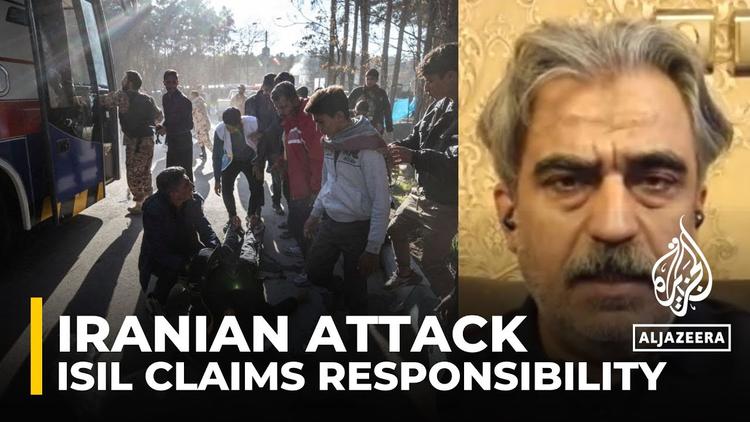January 5, 2024
The responsibility for the bombing
in Kerman, Iran, on Wednesday that killed at least 84 people and wounded
another 284, has been claimed by the ISIL (Daesh, ISIS) terrorist group. The
worst terrorist bombing in Iran since the Mojahedin-e Khalq (MEK) blew up the
Iranian leadership in 1981 struck at a commemoration of the assassination by
Donald Trump of Iranian Revolutionary Guards Corps General Qasem Soleimani.

Initially, figures in the Iranian
government blamed Israel, and threatened retaliation. Iran opposes the Israeli
total war on the civilians of Gaza, and leads a loosely organized Alliance of
Resistance (against Israeli militarism) comprising Lebanon’s Hezbollah, Iraqi
Shiite militias, and Yemen’s Houthis. The modus operandi of the Kerman bombing,
however, with its targeting of civilian crowds in the service of inflaming
conflict, better suits ISIL. The ISIL leadership had taken over northern Iraq
and eastern Syria 2014-2018 by fomenting Sunni-Shiite civil war.
Although the bombing turns out not
to implicate Israel, it certainly has a context in Tel Aviv’s reduction of Gaza
to rubble and its murder of over 20,000 civilian noncombatants.
Osamah Bin Laden gave three reasons
for undertaking the 2001 terrorist attacks on New York and Washington, D.C. —
the US military presence in the Muslim holy land of Saudi Arabia, the excess
civilian deaths caused by the US sanctions on Iraq in the 1990s, and the Israel
occupation of Jerusalem and the threat it posed to the al-Aqsa Mosque complex
(Islam’s third holiest shrine).
The Palestine piece is crucial. I
wrote in 2010, “Last winter during the Gaza War, an audio tape attributed to
Bin Laden did not neglect to mention the need to recover al-Aqsa Mosque (the
Muslim holy site in Jerusalem) for Islam. Before 9/11, in early 2001, Bin Laden
was penning odes to the liberation of Jerusalem and reading them at his son’s
wedding.”
The US and European press never gave
the Palestine issue its due in explaining Muslim radicalism twenty years ago,
because facing the truth was too painful.
If ISIL did strike Iran, it may well
have done so to take the shine off Iran’s current street cred in the Muslim
world over Gaza. As the major Sunni Muslim countries have fallen silent or
secretly cooperated with the Israeli onslaught, Iran has vigorously denounced
the Israeli campaign against the Palestinians of Gaza. Its proxy militias in
Iraq and Syria have repeatedly attacked US military personnel at Tanf in Syria
and at Ain al-Asad base in Iraq. The Houthis have closed the Red Sea to traffic
by international container ship companies.
ISIl hates Shiites and sees them as
wretched heretics, and has made attempts to establish itself among
Palestinians. It would want credit for resistance to the Israeli campaign to go
to Sunni radicals. This strike at Kerman was revenge for the Iranian role in
defeating ISIL in Syria, an effort directed by Soleimani.
Indirectly, then, the Gaza conflict
is having the effect of strengthening Iran’s Alliance of Resistance on the one
hand, and of raising jealousies among and galvanizing Sunni radicals.
The longer the Biden administration
allows this savage carnage on the part of Israel to continue before the eyes of
the world, the more likely it is that the whole Middle East and perhaps the
Muslim world more widely will be destabilized. The US and its allies will not
be left untouched by such a development, as the Red Sea debacle already
demonstrates. But that interruption of container ship traffic could be a minor
consequence of the Israeli genocide against Gaza compared to what is coming.
No comments:
Post a Comment